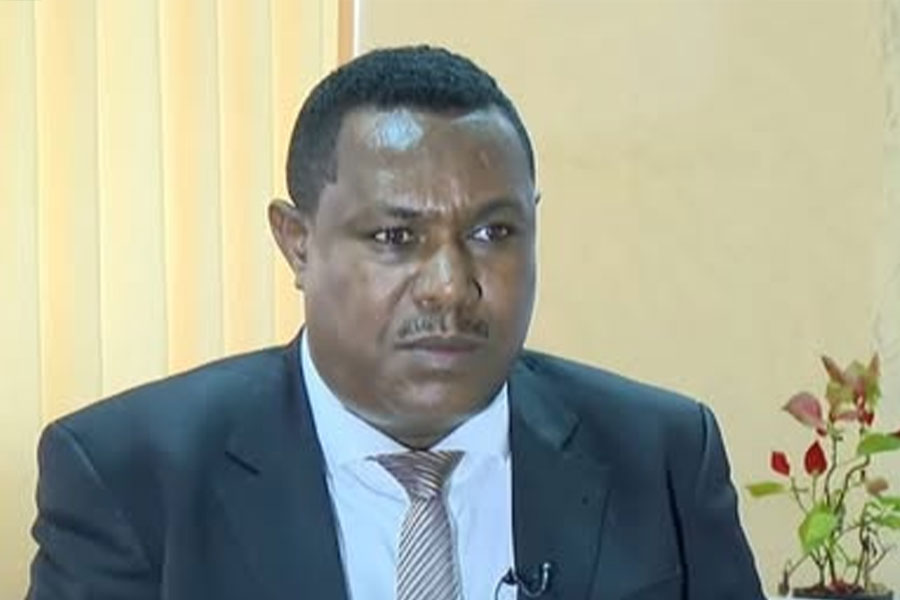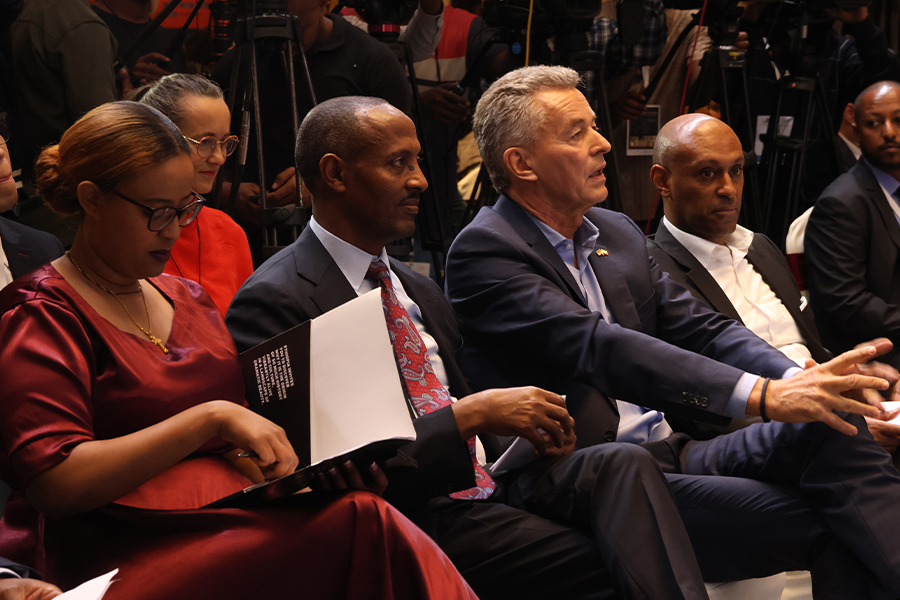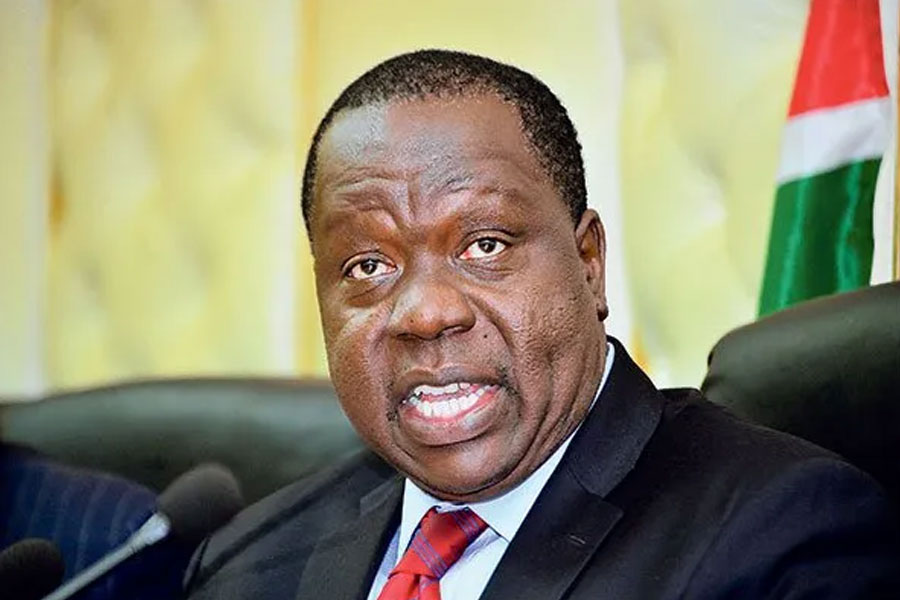
Agenda | Aug 04,2024
To say Molla Zegeye witnessed history unfold would be an understatement. He actively tussled with it, leaving a lasting mark on Ethiopia's turbulent but recent political history of half a century. His life was marked by momentous decision-making that turned the country’s way in a different direction.
Molla was one of the custodians of the Imperial system. It was the fate of history that he would participate in the revolution that dismantled the crown later. He felt the pangs of injustice while he was serving in the Imperial Guard — a searing indictment of neglect during the Wello famine, which ignited a fire in his gut to play a role in putting the monarchy to an end. Along with others like him, he became the storm that swept away the reigns of Haile Selassie I, after ruling the country for nearly five decades.
As a member of the sub-Derge, Molla's voice rallied the masses towards a new dawn when the military officers of lower ranks grouped themselves under the Dergue (otherwise a committee), beckoning with their promises of equality. He embraced the change wholeheartedly, throwing himself into the revolutionary fervour. After all, it was a cause he almost lost his life for. His gift for oratory might have been bordering theatrics. But, it was a potent tool that galvanised support across the fledgling country.
Molla was not content with speeches, however. He was a man of action.
From the halls of the central bank to the fields of Chiro (Asebe Teferi), Jigjiga and Sidama, he left his marks on reforestation initiatives blooming under his watch, and war-torn communities found solace in his efforts at reconstruction. In the aftermath of the devastating war between Ethiopia and Somalia that destroyed the town and the absence of funds from the central government, Molla took the initiative to mobilise funds from the community and reconstruct the region.
However, a man of such values was bound to provoke the ire of the regime's growing authoritarianism. His voice, once a rallying cry, became an unwelcome dissent. He was relegated to the mundane world of the Ethiopian Postal Service, stripped of his lofty position. However, the perceived punishment was a moment that changed his life's course. It became the catalyst for a change. He enrolled in law school at night, and the courtroom became his new battleground.
That was where he met a fellow lawyer who accompanied him as a graduation committee member — Tsegaye Mekasha. Their acquaintance evolved into a friendship that outlasted decades. Tsegaye spoke of him with reverence, a man who "walked the path of his convictions to the very end." Molla's booming voice now wielded the power of law.
Another fate of history presented to him when he championed the causes of the Derge's most senior leaders, advocating for their amnesty. The surviving leaders serving life sentences were eventually pardoned after two decades of incarceration.
His persistence and articulation proved advantageous in landing him high-profile cases. He became the lawyer of choice for some of the capital's elite.
Businessman Ermias Amelga was one of the clients during his Access Bank and Access Real Estate debacles. He praised Molla's confident demeanour and his ability to present arguments. He recounted an instance where Molla's fierce defence in one of their cases caused his blood sugar to drop so low the court had to recess.
“The messenger is equally important as the message,” he said.
Molla's eloquence and persuasiveness extended beyond the courtroom. These very qualities captivated his wife, Biruktawit Deresse. She recalled their casual phone conversations as the highlight of her days during courtship. Their union brought forth three children. His wife believes the good faith he had shown returned tenfold. A young man, saved from execution by Molla's legal prowess, returned years later, extending a helping hand during a time of financial hardship.
"He possessed the love of people," said Biruktawit.
Fate, however, dealt a cruel hand. The ghost of the Dergue regime resurfaced when the EPRDF took over the government in the early 1990s, leading to Molla's nine-year imprisonment. These were stolen years; precious moments ripped away from his young family. Within the confines of the prison, Molla's spirit remained unbroken. He became his own advocate, emerging from the ordeal, in his words as, "undefeated in defeat."
Freedom after a decade was not a return to the life he once knew. The world had shifted, and Molla had to rebuild. This was not a new challenge for a man who had wrestled with the Imperial and military regimes. He believed in second chances, a concept that mirrored his life. Bole Road became his sanctuary, a place of solace where he continued to be a vocal critic of injustice until the cords betrayed him, a few years before his passing on March 7, 2024. He was laid to rest at the Holy Trinity Cathedral Church.
Those close to him cherish his memory as an illustration of the indomitable human spirit. He was a man who dared to defy the status quo, a daring person who etched his name in the lawyers' association, where he dedicated time to uplifting the profession. In the words of Tewodros Getachew, head of the Association, Molla had a trait that all lawyers should possess — a commitment to a cause.
Molla devoted time away from gigs that would earn him financial gains and worked for the Association. His advocacy did not end there. A few years before his passing, he began a digital program in a makeshift studio on Africa Avenue (Bole Road). He had hoped to awaken the youth and leave a legacy transcending political partisanship.
PUBLISHED ON
Mar 30,2024 [ VOL
24 , NO
1248]

Agenda | Aug 04,2024

Radar | Jan 09,2024

Editorial | Jun 21,2025

View From Arada | Sep 27,2025

Radar | May 24,2025

Delicate Number | Jun 07,2025

News Analysis | May 04,2024

Radar | Nov 09,2024

Life Matters | Jun 21,2025

Verbatim | Aug 13,2022

Dec 22 , 2024 . By TIZITA SHEWAFERAW
Charged with transforming colossal state-owned enterprises into modern and competitiv...

Aug 18 , 2024 . By AKSAH ITALO
Although predictable Yonas Zerihun's job in the ride-hailing service is not immune to...

Jul 28 , 2024 . By TIZITA SHEWAFERAW
Unhabitual, perhaps too many, Samuel Gebreyohannes, 38, used to occasionally enjoy a couple of beers at breakfast. However, he recently swit...

Jul 13 , 2024 . By AKSAH ITALO
Investors who rely on tractors, trucks, and field vehicles for commuting, transporting commodities, and f...

Oct 25 , 2025
The regulatory machinery is on overdrive. In only two years, no fewer than 35 new pro...

Oct 18 , 2025
The political establishment, notably the ruling party and its top brass, has become p...

Oct 11 , 2025
Ladislas Farago, a roving Associated Press (AP) correspondent, arrived in Ethiopia in...

Oct 4 , 2025
Eyob Tekalegn (PhD) had been in the Governor's chair for only weeks when, on Septembe...